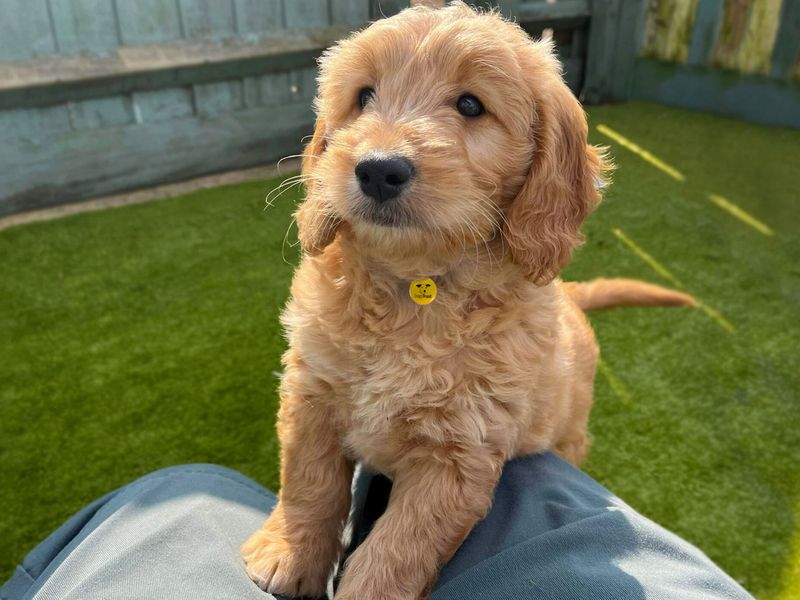Teaching your puppy good habits
Get started early, and your puppy is more likely to show good behaviours for the rest of their life.

It’s important to teach your puppy good habits. Do this while they are young, and you will help set them up to be able to continue them into adulthood.
How do you do this, though? There are two ways – consistency and environment management.
The importance of consistency
Consistency is key to any training. It helps pups to understand what is expected of them.
This includes:
- consistency with house rules
- consistency between family members
- consistent messaging
- consistently rewarding good behaviours (and starting to do this straight away)
Jumping up is a common problem that consistency can help solve. Meeting people is very exciting for young pups, which may be one of the reasons they might jump up at them. It’s also often encouraged in puppies so the behaviour is reinforced. However, you can prepare your pooch for visitors and teach them not to jump up.
Top tip: Make sure you are consistently rewarding your pup when all four paws are on the floor and avoid giving them attention for jumping up. Make sure everyone in your household (and any visitors) are consistent and always greet your puppy calmly. They will quickly learn not to jump up.
Help teach your visitors how to interact with your puppy by talking to them about what they should do before they visit.
Consistency makes life easier to understand for our dogs. It may take time but keep at it and you will get there.
Environment management
Managing your puppy’s environment means you will set your puppy up for success to build lots of good habits.
Is jumping up onto the sofa a habit you don’t want your puppy to start? Then make sure that when you leave the room, your puppy is in a safe place, or they come with you.
This means that your puppy only has access to the sofa if you are also present. That way, you’ll be there and can make sure they only jump up if and when invited.
Leaving puppy on their own may mean they learn that they can jump up whenever they like. By managing the environment, you are ensuring your puppy doesn’t get the chance to do the things you don’t want them to.
Top tip: Make sure to check with your vet that jumping on the sofa is appropriate for your dog before encouraging them. Most dogs enjoy having their own safe bed or place to relax in a room with you so make sure they have the option. If your puppy does get on the sofa and you don’t want them to, you can teach them to stay off the furniture.
You also want to make sure your puppy doesn’t chew anything they shouldn’t. You can do this by puppy proofing your home – moving any prized possessions or hazardous objects out of the way. Once you have done this, provide lots of suitable and safe toys and chews. This environment will set your dog up for success and then you can reward them for chewing on the right things.
Another great way to manage your puppy’s environment is with a baby gate, playpen or crate.
If you are doing the housework, for example, provide your puppy with a suitable activity in a safe place like a playpen or crate. This allows them to practise being calm while you do other things and helps keep them safe too.
Need to know: Make sure you train your puppy to use the crate before they go in one. They should always be comfortable and like being in the crate.
More help with behaviour and training
By being consistent and managing your puppy's environment you can help prevent them from practising unwanted behaviours.
Starting off with this approach will set your pup up for success and can make your life together much easier.
Of course, as much as you try, your puppy may still pick up some habits you’d rather they didn’t. Check out 10 common puppy problems solved.
You could also contact our Behaviour Support Line if you need more support.



